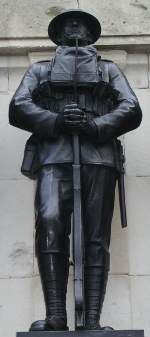
Wakes from its slumber the suspicious eye,
And bids it look abroad on hill, and dale,
Cottage, and steeple, in the niveous stole
Of Winter trimly dress’d. The silent show’r,
Precipitated still, no breeze disturbs,
While fine as dust it falls. Deep on the face
Of the wide landscape lies the spotless flood
Accumulating still, a vast expanse,
Save where the frowning wood without a leaf
Rears its dark branches on the distant hill.
I have today’s weather to thank for the inspiration and the Oxford English Dictionary for the reference to Hurdis, though strangely it spells the title of his poem Favorite Village – which would seem unlikely for a Sussex Clergyman and Professor of Poetry at Oxford University. He’s hardly a household name now, is he? (Does the same fate await today’s holder of this post? Was all that fuss over the election and voluntary de-selection of Ruth Padel a waste of time?)
I had to look up Hurdis in Oxford’s Dictionary of National Biography, as there’s precious little about him elsewhere online – thanks again to Derbyshire County Council Libraries – long may this cultural blessing last! I cannot resist (ah, near-fatal weakness mine!) including the DNB evaluation of the poet’s character:
The intensity of Hurdis’s feelings, and his inability to control them, resulted in repeated strife with all but his mother and sisters, by whom alone he seems not to have felt threatened. Indeed, his behaviour in his final years seems to have verged on the deranged.
No wonder he welcomed the silent, obscuring blanket of snow – as did the Poet Laureate, Robert Bridges. My thanks to my friend and colleague Trevor Millum for these lines from ‘London Snow’ which he sent me this morning:
When men were all asleep the snow came flying,
In large white flakes falling on the city brown,
Stealthily and perpetually settling and loosely lying,
Hushing the latest traffic of the drowsy town;
Deadening, muffling, stifling its murmurs failing;
Lazily and incessantly floating down and down:
Silently sifting and veiling road, roof and railing;
Hiding difference, making unevenness even,
Into angles and crevices softly drifting and sailing.
All night it fell, and when full inches seven
It lay in the depth of its uncompacted lightness,
The clouds blew off from a high and frosty heaven;
And all woke earlier for the unaccustomed brightness
Of the winter dawning, the strange unheavenly glare:
The eye marvelled – marvelled at the dazzling whiteness;
The ear hearkened to the stillness of the solemn air;
No sound of wheel rumbling nor of foot falling,
And the busy morning cries came thin and spare.



 Today’s
Today’s  A happy and melodious Christmas to all our readers! As a follow up to
A happy and melodious Christmas to all our readers! As a follow up to